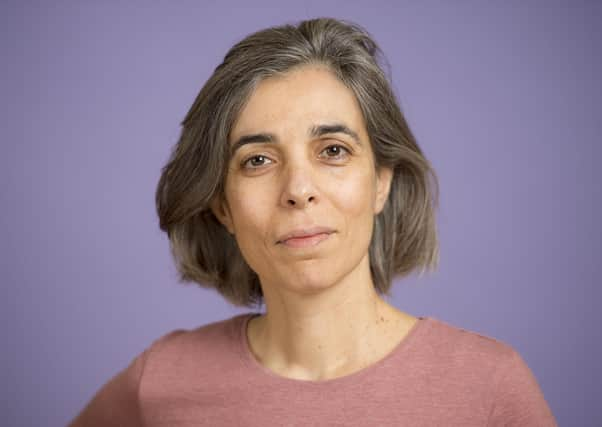We need festivals that touch our hearts first and our purse second – Eleni Theodoraki


Edinburgh festival aficionados have a once-in-a-lifetime opportunity to help the festivals survive Covid-19 and relaunch with a new vision.
Critics who saw the festivals as children of unsustainable commercialism and violators of citizens’ freedoms, now have the power to shape the guiding values needed to reform past practices.
Advertisement
Hide AdAdvertisement
Hide AdThis summer, as we contemplate our personal future in the shadow of the ghosts of festivals past, let’s consider the role they have in our lives and seize the opportunity to look forward.
The Edinburgh festivals are children of love. Love of life and laughter. Love of beauty and rebirth. The International Festival was born of euphoria at the end of World War Two. The lights came on in Europe, and an Austrian impresario who had fled the Nazis found his perfect stage in Edinburgh. His dream was to create an artistic institution for the flowering of the human spirit and to celebrate the triumph of peace.
Festivals enrich our private lives by being shared spaces of celebration, commemoration and the merging of new ideas. They are co-created by the performers, venue managers and host cities, by the media and the local businesses that supply resources and cater for the needs of all involved.
But like all areas of public life, festivals often become places of isolation, exclusion, environmental destruction, even violence and abuse. Unsustainable practices in the production and consumption of festival experiences are omnipresent.
The post-2008 economic crisis brought to the fore the debate over the social utility of festivals. The climate emergency sensitised many festival stakeholders to the damage caused by various sources of carbon emission.
Festivals adapted by merging together to deal with sponsors and work in tandem. They embarked on readdressing inequalities with social agendas. They agreed to protect the environment by reducing, recycling and reusing. But for some, all this is evidently not enough.
There is a very human reason why festivals mean so much. Festivals act as pressure valves and in age-old, religious contexts, offered cathartic experiences through divine rituals. Festivals also give special meaning to places as performers and participants co-create celebration and the elusive sense-making of our intertwined lives. During festival time, invisible gates open for the flow of people, ideas, products and services.
They can be inspirational and aspirational. Anxiety can be neutralised through joyous experiences of collective festivity. In this area, festivals learn from their sisters, the carnivals, which were designed to eliminate barriers among people created by hierarchies, replacing them with a vision of cooperation and equality.
Advertisement
Hide AdAdvertisement
Hide AdIn the aftermath of the Black Lives Matter protests, festivals can release pressure by becoming the places to challenge and re-negotiate with hierarchies. In what deep down feels like an unjust world, festivals, sometimes, create space for the audacity of hope in our hearts.
But we came to measure festivals by the number of visitors they brought to the country and what they spent. Then festivals became bigger. Splashing out to compete for the hordes of tourists in a frantic inflation of experiences. We need festivals that touch our hearts first and our purse second. Smaller, local, less competitive, less loaded with consumption.
Today we are at a crossroads. We can choose to mourn or celebrate the loss of festivals. Or we can choose life. We can choose to embrace uncertainty and to work hard for the rebirth of even greater festivals as spaces of collective love. Love of the old and the new. Respect for the familiar and the foreign. Acceptance of the convenient and the challenging. Utopias of abundance and freedom exist for a reason in our dreams. They guide us to what we truly love. They guide us home.
As we start on the way to adapt our festivals, the way will appear. Artistry and creativity will find the way. We need faith in our performing artists, faith in ourselves and the fellow travellers in our paths. And we need to follow the light that we can recognise from miles when we see it. The light of a great performance. The magnetic aura of the play and the storyteller.
When the United Nations launched their 17 sustainable development goals, they told the story of the North American, Indian chief with whom lies responsibility for all forms of life. His message was clear: To leave no one behind, we must all lead.
At this juncture we cannot act small. We are the guardians of the heritage we inherited in the buildings that surround us and we are the carriers of the spirit of what it means to be a citizen of Edinburgh. With the thistle as the symbol of courage and nobility in our soul and with compassion and respect as the North Star guiding us, we must choose life! Art and culture can be our lamp, our lifeboat, our ladder.
Eleni Theodoraki, Associate Professor in Festival and Event Management at Edinburgh Napier University
Comments
Want to join the conversation? Please or to comment on this article.